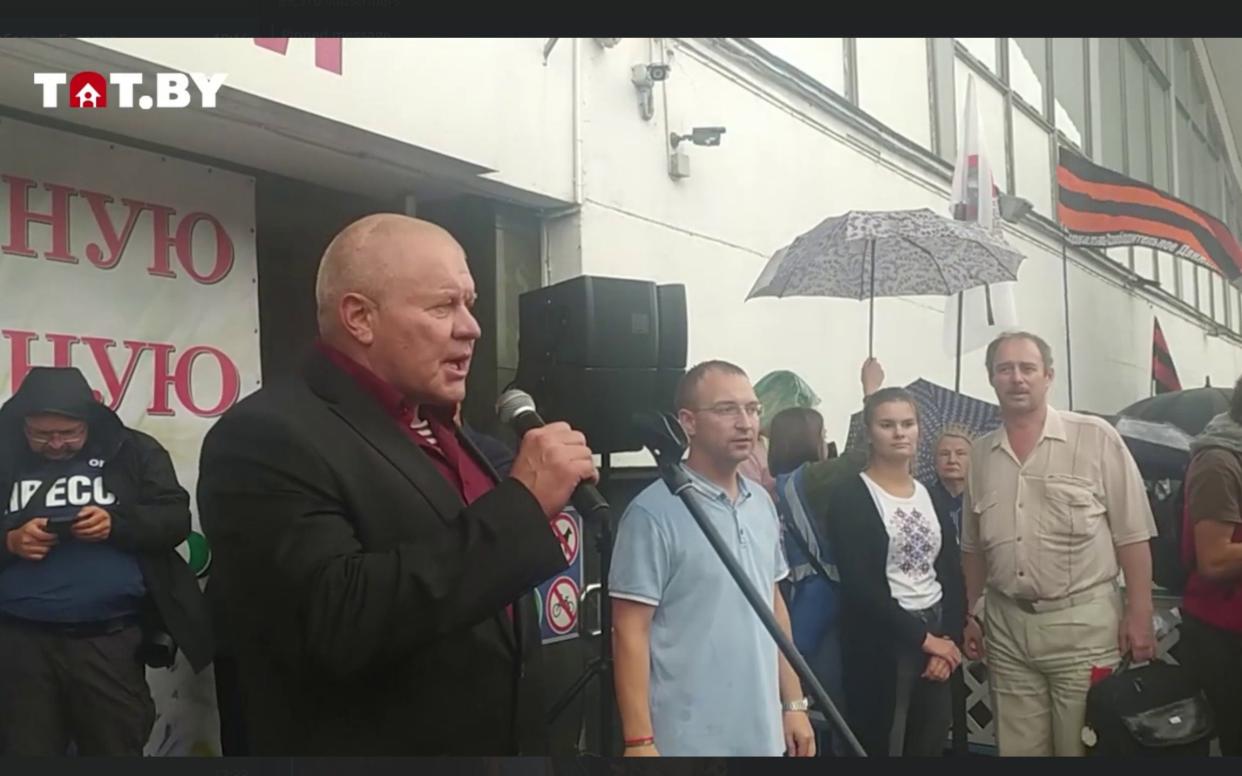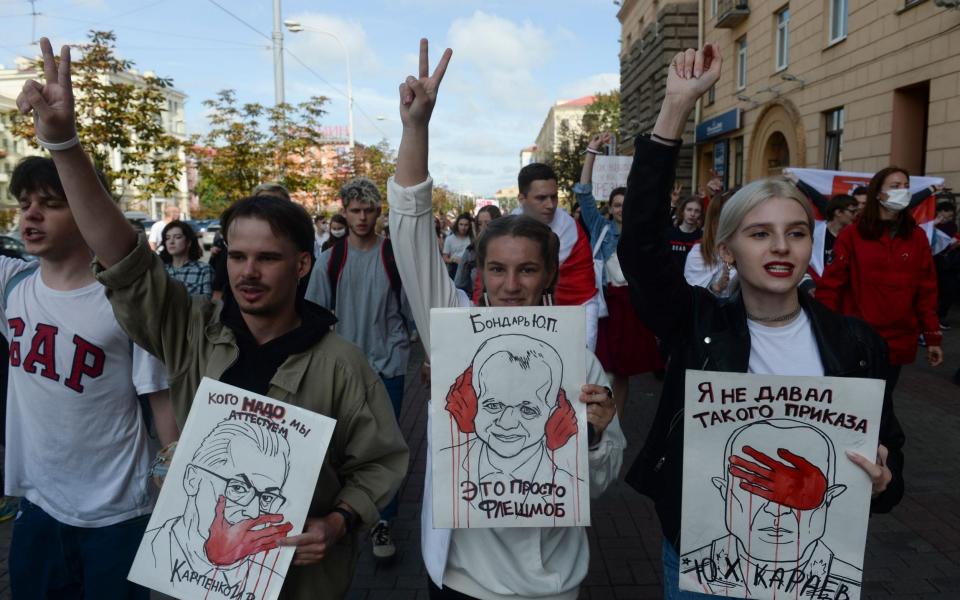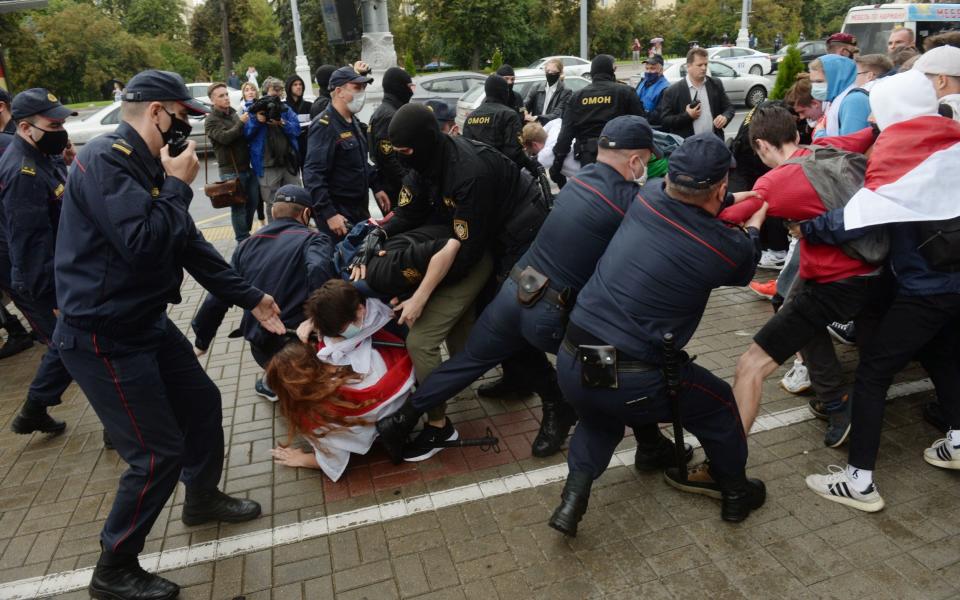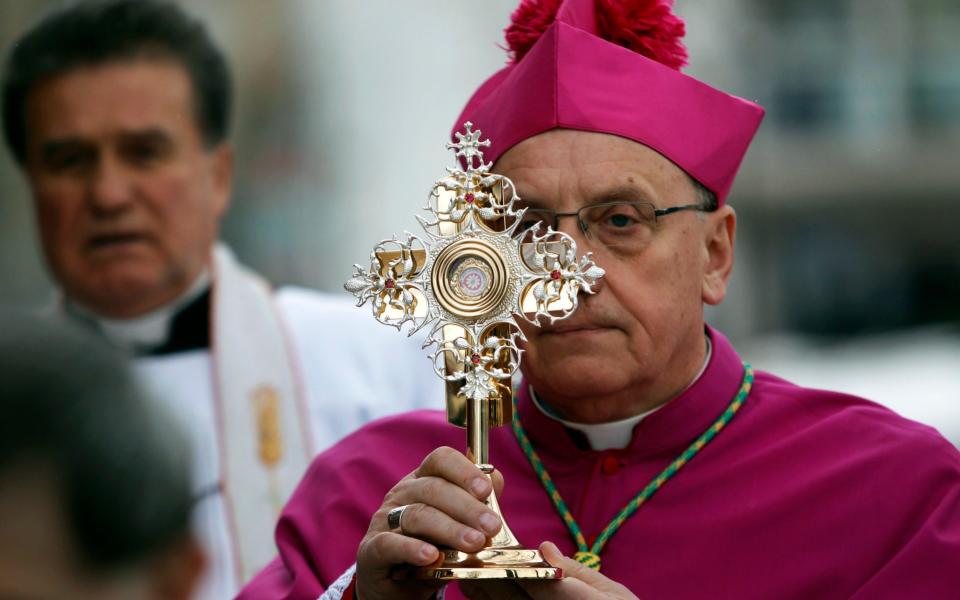Alexander Lukashenko's notorious 'hitman' threatens Belarus protesters

A policeman accused of acting as chief hitman to Belarusian president Alexander Lukashenko has emerged from "retirement" to intimidate anti-government protesters.
Dmitri Pavlichenko, the former head of an elite police unit, was sanctioned by the European Union in 2004 for allegedly running a death squad that organised the killing of four of Mr Lukashenko's political opponents. He has denied involvement in the killings, said to have been carried out with a silenced pistol normally used for judicial executions in one of Belarus's jails.
After last month's disputed elections, he is understood to have been brought back into service, directing riot police who beat and arrested protesters in the days that followed. Last week, he also delivered a speech on the streets of the capital, Minsk, denouncing the opposition as "mercenaries and criminals".
"Sadly some of them, boozy and drugged up, began to destroy our city!" he declared. "Riot police and special forces came to the defence."

Mr Pavlichenko is among a number of senior Belarusian officials accused of involvement in the disappearance of opposition figures in the 1990s.
In 2004, a report to the Council of Europe's Committee on Legal Affairs and Human Rights linked him to the killings of Yuri Zakharenko, a former interior minister, Victor Gonchar, a former vice-president of the parliament, Anatoly Krasovski, a businessman who disappeared alongside Mr Gonchar, and Dmitri Zavadski, cameraman for the Russian TV channel.
It was claimed that three of the killings were carried out using the official execution pistol from the death row wing of Minsk's Pishchalauski Castle prison. The gun was said to have been signed out from the facility at the time of the murders.
A report into the disappearances by Belarus's own prosecutor general once described Mr Pavlichenko as “the organiser and head of a criminal body engaged in abduction and physical elimination of people.” However, Mr Pavlichenko was allegedly shielded from investigation on the personal orders of Mr Lukashenko, who in 2005 gave him an official award.

"The fact that Mr Pavlichenko is present on the streets is worrying, because he is one of the bloodiest figures of Mr Lukashenko's rule," said Tadeusz Giczan, a PHD researcher on Belarus at University College London. "He isn't the most senior figure, but he's the one who does the dirty work, which is perhaps why he's been brought out of retirement."
The reappearance of Mr Pavlichenko comes as the Belarusian authorities intensify their crackdown on the opposition.
This week police arrested Lilia Vlasova, a member of the “coordination council” set up by opposition leader Svetlana Tikhanovskaya to oversee the peaceful transfer of power.
She is the third member of the council’s executive committee to be detained since Belarus’s prosecutor general launched a criminal probe into the group, accusing it of trying to “seize power” from Mr Lukashenko.
Belarusian writer Svetlana Alexeivich, who won the Nobel Prize in Literature for her studies of the collapse of the Soviet Union and the Chernobyl disaster, has been questioned by police over her role on the committee.
The archbishop of Minsk, Tadeusz Kondrusiewicz, was meanwhile barred from re-entering the country from Poland after speaking out against the brutal police crackdown on protesters.

“In peace-loving and tolerant Belarus...brother raised his hand against his brother,” he said in a special address.
“More and more one hears that the threat of a civil war is becoming real, which none of us could have imagined even a few months ago.”
Authorities have also sought to suppress a wave of strikes that broke out in response to the election result, and on Monday sentenced the leader of a walk-out at the Belaruskali potash factory to 15 days in jail.
Belarusian television is employing Russian state news journalists, especially from the Kremlin-funded channel Russia Today, to fill the airwaves following walkouts from their own staff, according to media reports.

